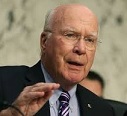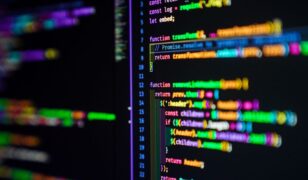‘Congress should shut it down,’ says Sen. Leahy, of NSA’s metadata collection program

Senator Patrick Leahy, the Vermont Democrat who chairs the Senate Judiciary Committee, took to the Senate floor on Feb. 10, and criticized the National Security Agency for exaggerating the usefulness of its telephone metadata collection program, even as news accounts report that the NSA has been gathering a far smaller percentage of Americans’ phone call records than had earlier been thought.
“It appears to this Senator that the intelligence community has defended its unprecedented, massive, and indiscriminate bulk collection by arguing that it needs the entire ‘haystack’ in order for it to have an effective counterterrorism tool — and yet the American public now finds out they only have 20 to 30 percent of that so-called haystack,” Leahy noted.
He argued that recent revelations in the media call even further into question the effectiveness of this metadata collection effort.
“Although the program is ongoing, some preliminary and positive changes are underway,” Leahy told his Senate colleagues. “Just last week, the Director of National Intelligence announced that the FISA Court has approved procedures under which the government will seek approval by a FISA Court judge before querying these phone records — absent a true, almost instantaneous kind of an emergency.”
“The President has directed the Attorney General and the Director of National Intelligence to develop alternatives to the section 215 phone records program and report back to him at the end of next month,” Leahy continued. “That is progress but only some progress. It is not enough. It is not going to be enough to just reform the government’s bulk phone records collection program.”
The program — as expensive and extensive as it is — has not proven effective, the Vermont lawmaker insisted. But beyond that, it is not worth the massive intrusion on the privacy of the American people, he argued.
“Congress should shut it down,” Leahy said, with finality. “We should enact the bipartisan, bicameral USA FREEDOM Act. Then, Congress has to examine carefully — and to the extent possible publicly — the [Edward Snowden] security breach that led to these revelations in the first place.”







